GwinnettForum | Number 19.90 | Feb.25, 2020
LOOK AT THE DETERMINATION of these three youngsters when it comes to digging a hole for a tree on the campus of Georgia Gwinnett College. It was part of a focus on sustainability at the campus, as two Redbud trees were planted on Arbor Day. The youth manning the shovels were the grandchildren of Patty Stafford, behind the kids: John David, 3; Lucy, 5; and Adam Stafford, 9. On the left is Sophie Hoare, a goalkeeper on the women’s soccer team. Elizabeth Sudduth, who chairs GGC’s Sustainability Committee, says: “We want the campus community to understand the need for more sustainable practices for the future. Sometimes environmental news can be depressing, so we hope that our focus on providing resources for concrete actions that they can take will help make this more useful for today and more beneficial for future generations.”
 TODAY’S FOCUS: Duluth First United Methodist Church and Its Town Grow Up Together
TODAY’S FOCUS: Duluth First United Methodist Church and Its Town Grow Up Together
EEB PERSPECTIVE: Have You Ever Considered Why You Live Where You Do?
SPOTLIGHT: Heaven and Alvarez, LLC
FEEDBACK: Making a Candid Assessment To Some Previous Letters
UPCOMING: Here Are Details About the 2020 Election Season for Local Candidates
NOTABLE: Gwinnett Community Bank Now a Division of Raleigh, N.C. Bank
RECOMMENDED: Blue Flowers by Carola Saavedra
GEORGIA TIDBIT: Mary Telfair Best Known as the Benefactor of the Telfair Museums
MYSTERY PHOTO: A Bridge Might Give a Clue for This Mystery Photo
LAGNIAPPE: Sugar Hill Become Another Tree City, USA
Duluth First United Methodist Church, town grow together
By Pete Fleming, historian
Duluth First United Methodist Church
DULUTH, Ga. | In 1871, the railroad and the Methodist Church arrived at Howell’s Cross Roads, Georgia, at which time the town was newly christened with the name, “Duluth.” Promoting peace and prosperity following a devastating Civil War, the town and the new church grew together, slowly through the next half-century, but accelerating later with astonishing velocity. As both the town and the church approach their sesquicentennial year in 2021, major celebratory events are being planned. This article focuses on celebration plans of Duluth First United Methodist Church (DFUMC).
Led by Senior Pastor Terry Tippins and Associate Pastor Beth Brown Shugart, seven committees will develop activities over the next 1 ½ years culminating in a celebration service led by the Bishop of the North Georgia Conference, Sue Haupert-Johnson, on September 19, 2021. Production of a history of DFUMC is central to these events, and that project is well underway.
Duluth Methodist Episcopal Church, South, as it was originally named, was founded in the spring of 1871 by eight individuals with the last names of Howell, Herrington and Jones, then soon joined by John W. Knox. The little church, led initially by Reverend George R. Kramer, met for two years in Singleton Howell’s home within the city. The church grew steadily. It soon outgrew the Howell house, and in 1873 its members built a sanctuary on land donated by Singleton Howell (today’s City Hall site), using virgin timber cut and milled in the area. This single room structure stood unchanged until 1921 when three classrooms were added to each side to accommodate the growing Sunday school classes.
Sixty lead pastors have served the DFUMC. Seven of these had served as chaplains, infantrymen or surgeons in the Civil War. Too small to afford a full time pastor, the Duluth church led a circuit of as many as six churches until it became what is called a “station” church in 1963 with its own pastor. Many of its pastors enjoyed wide popularity in the town. For example, N.O.L. Powell could often be seen in the 1930s walking the streets on his fitness outings as he visited with community residents. Clyde Lancaster enjoyed checkers and conversation with folks at many downtown establishments in the early 1970s.
Post World War II prosperity contributed to the town and the church’s growth. By 1950 the City of Duluth boasted a population of 842, a 400 percent increase since 1880 (while the Methodist church had grown to 250 members in the same period.) By the end of the 1950’s, the church had burst its seams, and local visionaries, led by businessman Calvin Parsons, argued that the confined downtown area was not sufficient for the church’s anticipated growth.
In 1961 the church moved to its present location on Georgia Highway 120 on land donated by Parsons and others. The new building erected that year is joined to the present large sanctuary that was added in 1990. Further facility expansion culminated in a 32,000 square foot Family Life Center added in 2003. The church’s outreach, programs and ministries have grown proportionately. Church membership now exceeds 3,000 members, with over 60 percent joining after 1990.
Although the train no longer stops in Duluth, both the town and the church have grown and prospered, symbiotically some would contend, for the past 150 years.
Historian’s Note: Many of the DFUMC’s documents were destroyed in a parsonage fire in 1942; however, member Kathryn Willis donated her collection of very old records to the church. These documents have formed the core of source records prior to 1942. After that time, the church’s records are complete.
- Have a comment? Send to: elliott@brack.net
Have you ever considered why you live where you do?
By Elliott Brack
Editor and Publisher, GwinnettForum
FEB. 25, 2020 | Have you ever considered why you live where you do?
 Most of us are not from Gwinnett County, but here we maintain our home, and go about our work, or schooling, or retirement. Probably we seldom give a second thought of why we are “Gwinnettians,” the phrase the late County Chairman Lillian Webb loved to use.
Most of us are not from Gwinnett County, but here we maintain our home, and go about our work, or schooling, or retirement. Probably we seldom give a second thought of why we are “Gwinnettians,” the phrase the late County Chairman Lillian Webb loved to use.
When we first came to Gwinnett, in 1974, native born residents were the rule. But with the surge in growth, the natives soon were out-numbered by the move-ins. And today, while the majority were not born here, as Gwinnett grows, the newcomer’s children are pushing Gwinnett toward a native-majority population again. And big numbers this time. The Census will tell us that.
Whether you have given consideration to why you live here, I can pinpoint the time when I decided where I wanted to live. It was one beautiful February day of my senior year in college, 1957, a day pretty much like last Friday. It was chilly, but the sun was shining, the rain had disappeared, and the jonquils were in full bloom. I was visiting my future wife on her parents’ farm near Macon.
Meanwhile, in the infant days of television broadcasting, there were the usual reports about the Midwest weather, the continuance of harsh winter low temperatures, and the depth of the snow on the ground in many parts of the North.
Perhaps it was the knowledge that many other parts of the country were still wearing their winter duds, stomping off the snow before entering the house, after shoveling the sidewalk, the garage entrance and being out in the harshness of winter. That February near-about spring-like day made me ask myself: “Why live anywhere but in Georgia?”
And though I’ve spent four years in other places, all along I had the intention of returning to Georgia. Actually, I never gave any other place a second thought.
About a year later, here my new spouse and I were headed for Fort Lee, Va., to complete military training at the Quartermaster School as part of my ROTC commitment. Soon I had an Army assignment, to head to Germany. I could travel concurrently with my wife at Army expense if I would sign on for another year of duty in the Army. We did, and that August boarded the USS Darby in New York for a sailing to Bremerhaven, Germany, then by train to our duty station in Bad Nauheim, Germany.
In September of 1961, we returned stateside, on those early jets in late 1961, where I soon departed for Iowa City, Iowa, for graduate study. Later Barbara and four-month old Andy joined me to live for a year in West Branch, Iowa. We returned to Georgia in 1962, and have been in the state since, in Jesup, Athens, Lawrenceville and Norcross. We are content here.
After all, as I once told my German employees at the commissary, we have everything in Georgia…the mountains, the seashore, big and small cities, modern-day jobs and a wonderful people. And above all: good weather. And now we are blessed with a new and vibrant diversity of people, bringing Georgia even new levels of quality.
Yes, I am proud of our state. Indeed, why live anywhere else? But many others love to live in other places, maybe best determined by where they were born.
Perhaps you can give us your thoughts of why you live where you do. We’ll be pleased to print your thoughts. Send ‘em in!
- Have a comment? Send to: elliott@brack.net
Heaven and Alvarez, LLC
 The public spiritedness of our sponsors allows us to bring GwinnettForum.com to you at no cost to readers. Heaven and Alvarez, LLC is a certified public accounting firm working with their clients to provide solutions for success. They are located at 4720 Peachtree Industrial Boulevard, Suite 201, Berkeley Lake, Georgia. They work in partnership with their clients to address the financial and accounting needs of their businesses, develop tax strategies, and develop plans for their clients regarding estate planning, business succession planning, and benefit and retirement planning. They can be reached at 770-849-0078.
The public spiritedness of our sponsors allows us to bring GwinnettForum.com to you at no cost to readers. Heaven and Alvarez, LLC is a certified public accounting firm working with their clients to provide solutions for success. They are located at 4720 Peachtree Industrial Boulevard, Suite 201, Berkeley Lake, Georgia. They work in partnership with their clients to address the financial and accounting needs of their businesses, develop tax strategies, and develop plans for their clients regarding estate planning, business succession planning, and benefit and retirement planning. They can be reached at 770-849-0078.
- Their website is www.heavencpa.com.
- For a list of other sponsors of this forum, click here.
Making a candid assessment to previous letter writers
Editor, the Forum:
![]() In reference to George Wilson’s post, I agree that all candidates are discussing the Healthcare situation but none are proposing much beyond “somebody ought to be doing something” and at least Elizabeth Warren is offering a plan. The fact is there is no easy way to address the issue; however, the current administration is making small adjustments here and there, but nothing as bold as the Warren Plan. Even though the big banks and large corporations are going to be affected and so-called foreign investments will be taxed, those revenue sources eventually come back to the consumer. Nonetheless as the article stated, no one else has put forward a solution or made recommendations for an area that has such a huge impact on the entire citizen.
In reference to George Wilson’s post, I agree that all candidates are discussing the Healthcare situation but none are proposing much beyond “somebody ought to be doing something” and at least Elizabeth Warren is offering a plan. The fact is there is no easy way to address the issue; however, the current administration is making small adjustments here and there, but nothing as bold as the Warren Plan. Even though the big banks and large corporations are going to be affected and so-called foreign investments will be taxed, those revenue sources eventually come back to the consumer. Nonetheless as the article stated, no one else has put forward a solution or made recommendations for an area that has such a huge impact on the entire citizen.
As a reminder to John Titus’ being troubled by interference with the judicial process (at first glance), it does appear excessive or more commonplace; however, this is likely a more visible interference (by this administration) than from past administrations.
It is just as reasonable to also be concerned that the “blindfold” has been removed from Lady Justice and that there are many so-called “politically activist” justices basing their decisions on factors other than the rule of law .
Both sides of this coin should be of concern to everyone.
— John Moore, Duluth
Some men had a high draft number and did not have to serve
Editor, the Forum:
I read with some interest the piece by Mr. Ashley Herndon on “Remembering How People Tried to Avoid Military Service.” I recall those days only too well, being of draft age during the Vietnam War era.
I got the feeling that Mr. Herndon believes that anyone who did not serve in the military was somehow dishonorable and somehow did something illegal or immoral to avoid military service. While I did not serve in the military, I have utmost respect and gratitude for those who did. I had a student deferment while I attended the University of Georgia and was planning to join either the National Guard or the U. S. Navy on graduation.
Before that happened, however, the United States held the first draft lottery. With my birthday, my draft lottery number came up 327, meaning I was unlikely to serve. I stood one year at Selective Service classification 1-A, was not called, and did not serve in the military, having fulfilled my military obligation (being subject to call as 1-A for one year) as the law at the time was written.
However, I did absolutely nothing dishonorable, such as buying a medical deferment or going to Canada, to avoid military service. In fact, I did nothing at all to evade the draft. All I did was to be born on July 6th. Getting a high draft number was sheer, dumb luck.
Again, I have utmost gratitude and respect for Mr. Herndon, and all who serve in the armed forces.But there are thousands like me, who did not serve due the simple luck of the draw.
— Robert H. Hanson, Loganville
A home water pressure test is well worth its cost
Editor, the Forum:
For the second time in my life, I have had a household water regulator fail. New homeowners should be taught that age is the greatest reason for them to fail. Working on your house water lines can cause them to fail, such as installing new meters in a neighborhood.
With pressure meters, you can test one’s system. The normal pressure is 40-80 psi (pounds per square inch.) My present pressure is 120 psi (normal is 40 to 80 psi) and a new regulator is being installed in the morning. I was lucky I didn’t have a burst pipe and a flood. I had a basement flood for this reason and hope no one else has one. A pressure test is well worth the cost. I never knew anything about these things until my late years.
New subject: And also, like the German Blitz of Britain, Michael Bloomberg may have to just absorb the continuous assaults from the other candidates until money thins their ranks. There may be staff reduction or cutbacks of travel and advertising. All the while, Bloomberg will be pounding away through all media. I am sure he will be coached up on debating. And $52 billion is a lot of money.
— Byron Gilbert, Duluth
Send us your thoughts: We encourage you to send us your letters and thoughts on issues raised in GwinnettForum. Please limit comments to 300 words. We reserve the right to edit for clarity and length. Send feedback and letters to: elliott@brack.net
Details about the 2020 election season for local candidates
Election season has arrived, and Gwinnett voters should make note of the many opportunities to exercise their civic duty. The deadline to register to vote and be eligible to cast a ballot in the March 24 Presidential Preference has passed. It was February 24.
 Voters are not limited to Election Day to cast their ballot. This year, the Gwinnett Voter Registration and Elections Division is offering more voting opportunities than ever before.
Voters are not limited to Election Day to cast their ballot. This year, the Gwinnett Voter Registration and Elections Division is offering more voting opportunities than ever before.
Eligible voters may vote in advance in person every day, including weekends, March 2 to March 20 at the Voter Registration and Elections Office, located at 455 Grayson Highway in Lawrenceville from 7 a.m. to 7 p.m.
In addition, satellite center voting will begin Monday, March 9 and continue through Friday, March 20 from 7 a.m. to 7 p.m. every day including weekends at seven additional locations around the county. Visit GwinnettElections.com for satellite voting locations.
Voters may request an absentee/advance by mail ballot for the March 24 Presidential Preference Primary now through Friday, March 20. Voting by mail is an option for all voters — not just those who will be out of town. A completed application must first be received before a ballot is issued. Call the Voter Registration and Elections Office at (678) 226-7210 to request an application or complete the form online at GwinnettElections.com.
The qualifying period for political party candidates, independent candidates and nonpartisan candidates for Gwinnett County offices will begin March 2 at 9 a.m. and end March 6 at noon. For more information on candidate qualifying in 2020, visit the Running for Office webpage.
Those who wish to qualify as a party candidate for Gwinnett County Offices must do so with the Gwinnett County Democratic Party or the Gwinnett County Republican Party. For information regarding locations for qualifying, please use the following email addresses:
- Democratic Party: info@gwinnettdemocrats.com
- Republican Party chairman@gwinnettrepublicans.com
Those who wish to qualify as Independent or Nonpartisan candidates will qualify at the office of the Gwinnett County Board of Voter Registrations and Elections located at 455 Grayson Highway, Suite 200, Lawrenceville, 30046.
Fees are paid to the organization with whom the candidate qualifies. Qualifying fees have been set as follows:
| County Board of Commissioners (Chair) | $ 1,500.00 |
| County Board of Commissioners (Districts 1 & 3) | $ 1,350.00 |
| County Board of Education (Districts 1, 3 & 5) | $ 520.25 |
| Clerk of Superior Court | $ 3,282.78 |
| Judge, State Court | $ 5,171.62 |
| Judge of Probate | $ 3,282.78 |
| Chief Magistrate | $ 3,282.78 |
| Tax Commissioner | $ 3,282.78 |
| Sheriff | $ 3,421.21 |
Gwinnett Community Bank now a division of Raleigh bank
Duluth’s Gwinnett Community Bank is now a division of First Citizens Bank of Raleigh, N.C. The changeover took place February 1. Brad Beisbier is the area executive in Atlanta for First Citizens Bank, and is located at the Duluth office of Gwinnett Community Bank.
For 122 years, First Citizens Bank has been in operation. It has more than 550 branches in 19 states, including 33 in Georgia. It is one of the largest family-controlled banks in the U.S. Beisbier says “We understand the challenges families — and family businesses — face. Because we share them. Helping families is at the heart of what we do — for this generation and generations to come.” The bank has assets of $38 billion, while Gwinnett Community Bank’s assets are $200 million. Gwinnett Community Bank has three locations, in Duluth, Suwanee and Buford.
Beisbier is a native of Wisconsin, who played as a football linebacker and graduated from the University of Wisconsin at Oshkosh. He also has an MBA from Georgia State University. He has been a banker in Georgia since 1988. He is married to Tera, an attorney, who he met at Oshkosh. They have three children, 16, 14 and 12. They live in Forsyth County.
Layman is winner of Gwinnett’s nature photo contest
The fifth annual winners in the “Stand in Ansel Adams Footsteps” competition by the Gwinnett Chapter of the Georgia Nature Photographers Association have been announced. The photographic competition is now for the first time having a 10-week exhibition at The Hudgens Center for Art and Learning in Duluth. The exhibit will run until April 25, 2020 at The Hudgens. There are no parking or entry fees. Winner of the 2020 competition with Steve Layman of Roswell with his “Dead Horse Point” photo above. For a list of other winners, click here.
Jackson EMC Foundation gives $60,000 to local nonprofits
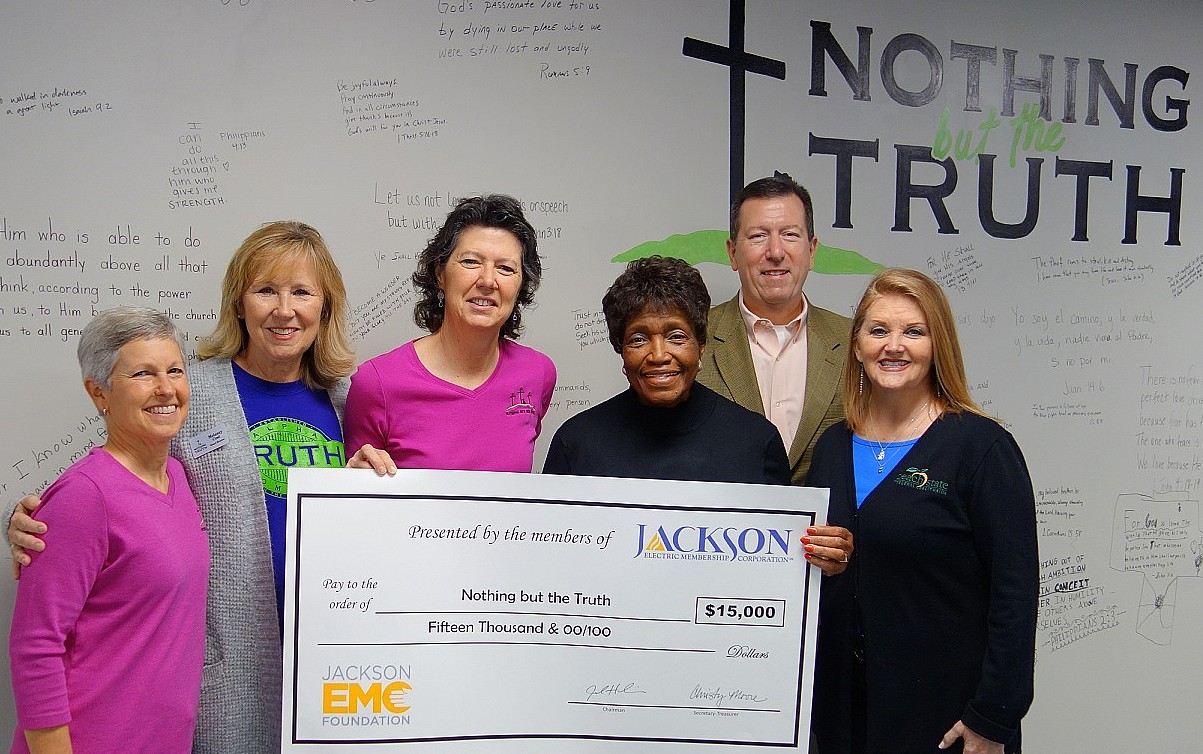
A $15,000 Jackson EMC Foundation check to Nothing but the Truth will help purchase food for the Weekend Food Bag Program. At the check presentation are (from left) Carol Baker, Nothing but the Truth ministry partner coordinator; Melaney Cost, board member; Scarlett Rigsby, executive director; Beauty Baldwin, Jackson EMC Foundation board member; Randy Dellinger, Jackson EMC district manager; and Teresa Welborn, board member.
The Jackson EMC Foundation board of directors awarded a total of $91,504 in grants during its January meeting, including $60,000 of which benefit organizations serving Gwinnett County.
- $15,000 to Lawrenceville Cooperative Ministry, for its Emergency Assistance Program.
- $15,000 to Norcross Cooperative Ministry, in Gwinnett County, for its Emergency Rental Assistance Program.
- $15,000 to Nothing but the Truth, a Dacula faith-based organization dedicated to meeting needs in the community, to purchase food for the Weekend Food Bag Program.
- $15,000 to Side By Side Brain Injury Clubhouse, Inc., a Stone Mountain nonprofit organization that helps individuals recovering from traumatic brain injury.
Jackson EMC Foundation grants are made possible by the 194,495 participating cooperative members who have their monthly electric bills rounded to the next dollar amount through the Operation Round Up program. Their “spare change” has funded 1,476 grants to organizations and 386 grants to individuals, putting more than $15 million back into local communities since the program began in 2005.
Blue Flowers by Carola Saavedra
![]() From Karen Harris, Stone Mountain: Marcos is the recipient of letters in blue envelopes signed only with the letter “A.” Each letter describes in vivid detail the slow erosion of a love relationship between A and an unknown man. Marcos is newly divorced and now lives in the apartment where the man once lived. Because Marcos life is in disarray and he is finding it difficult to relate to his ex wife, his daughter, a woman he is dating and his co-workers, the letters fill a void in his world that has lost its center. Marcos’s emotional disintegration results in a porous void from which he finds it difficult to determine what is real and what is not. Carola Saavedra’s raw and riveting prose is as beautiful as it is painful to read. This spare, but bracing story will leave the reader slightly haunted fused into two worlds.
From Karen Harris, Stone Mountain: Marcos is the recipient of letters in blue envelopes signed only with the letter “A.” Each letter describes in vivid detail the slow erosion of a love relationship between A and an unknown man. Marcos is newly divorced and now lives in the apartment where the man once lived. Because Marcos life is in disarray and he is finding it difficult to relate to his ex wife, his daughter, a woman he is dating and his co-workers, the letters fill a void in his world that has lost its center. Marcos’s emotional disintegration results in a porous void from which he finds it difficult to determine what is real and what is not. Carola Saavedra’s raw and riveting prose is as beautiful as it is painful to read. This spare, but bracing story will leave the reader slightly haunted fused into two worlds.
An invitation: what books, restaurants, movies or web sites have you enjoyed recently? Send us your recent selection, along with a short paragraph (100 words) as to why you liked this, plus what you plan to visit or read next. Send to: elliott@brack.net.
Mary Telfair best known as benefactor of Telfair Museums
A member of the distinguished Telfair family of Georgia, Mary Telfair is perhaps best remembered as the benefactor of Telfair Museums in Savannah. Upon her death, Telfair bequeathed her Regency-style home, located on Savannah’s St. James Square (renamed Telfair Square in 1883), and the books, furniture, and works of art located therein to the Georgia Historical Society. The society opened the house, built by architect William Jay, to the public in 1886, making Telfair the oldest public art museum in the South. A portrait of Telfair by Carl Brandt hangs in the museum’s rotunda.
Mary Telfair was born on January 28, 1791, in Augusta, then the capital of Georgia, while her father, Edward Telfair, was serving as governor. Her mother, Sarah Gibbons, was a member of one of the wealthiest and most prominent families in the South. Telfair attended private schools, in New York and at Newark Academy in New Jersey.
From her earliest years, Telfair had a burning curiosity and delighted in new experiences. She was a woman of keen intellect, and her intellectualism was closely linked to her independence of spirit. Telfair loved books and was particularly interested in poetry. She also read widely across other genres, including fiction, biographies, memoirs, and collections of letters.
In the nineteenth century, the expectation that a woman be an informed, vivacious conversationalist did not extend to knowledge of political issues. Yet Telfair formulated strong opinions on world and national affairs and openly expressed her convictions. She once debated with James Moore Wayne, a U.S. Supreme Court justice, the merits of renewing the national bank charter. Her views on the subject were perhaps influenced by her friendship with Nicholas Biddle, the president of the Bank of the United States from 1823 to 1836.
Although she stood only five feet tall, Telfair was a formidable woman. When her last surviving brother died in 1832, she and her sisters took over the supervision of the family’s plantations, which were land holdings of considerable importance.
Telfair never married. With her inherited wealth, marriage was not an economic necessity for her, as it was for most women of her time. She had the reputation of being proud and haughty and in her later years was noted for her “peculiar exclusiveness.” She could be openly critical of other women and had no use for the fashionable “southern belle.” Yet she was a woman of great personal charm and was devoted to her brothers Josiah, Thomas, and Alexander and her sisters Sarah and Margaret.
Hers was a mind of deep sensitivity that revered beauty and truth and abhorred pretension and show, as well as greed and insincerity. Telfair was frequently ill in an age plagued by illness. A member of the Independent Presbyterian Church in Savannah, she found comfort in her strong Christian beliefs and managed to cope with adversity.
Telfair found cultural and intellectual enrichment through her travels abroad. She made four trips to Europe, the first in 1841. While there, she found inspiration in visiting those hallowed places where the great events of history had occurred. She had a deep appreciation for the visual arts and saw some of the world’s greatest paintings in France, Italy, and the Netherlands.
Telfair witnessed the occupation of Savannah by Union general William T. Sherman’s troops during their March to the Sea in 1864. She died on June 2, 1875, at the age of eighty-four.
- To view the Georgia Encyclopedia article online, go to http://georgiaencyclopedia.org
A bridge might give a clue for this Mystery Photo
 Many of you have been here, and this may be an easy Mystery Photo. And to give you a simple clue, let’s just add that this is not in South Georgia. Send your answer to elliott@brack.net and include your hometown!
Many of you have been here, and this may be an easy Mystery Photo. And to give you a simple clue, let’s just add that this is not in South Georgia. Send your answer to elliott@brack.net and include your hometown!
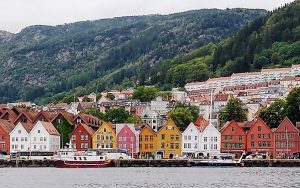 The colorful images of the last Mystery Photo found several readers recognizing it. George Graf of Palmyra, Va. immediately recognized it: “The photo is the row of Hanseatic houses on Bryggen Street along the Bergen Harbor waterfront. Bergen is the second oldest city in Norway and one of the wettest in Europe. The German Hanseatic League merchants and supporting workers lived in Bergen for nearly 400 years trading for the local grains and fish. There is a Hanseatic Museum in Bergen to learn more about those times.” The photo came from Jerry Colley of Alpharetta.
The colorful images of the last Mystery Photo found several readers recognizing it. George Graf of Palmyra, Va. immediately recognized it: “The photo is the row of Hanseatic houses on Bryggen Street along the Bergen Harbor waterfront. Bergen is the second oldest city in Norway and one of the wettest in Europe. The German Hanseatic League merchants and supporting workers lived in Bergen for nearly 400 years trading for the local grains and fish. There is a Hanseatic Museum in Bergen to learn more about those times.” The photo came from Jerry Colley of Alpharetta.
Virginia Klaer of Duluth says: “The bright colors of buildings give away the location in Norway. Homes and buildings are apparently painted in bright colors to help cheer residents in their long, long dark winter nights and few hours of sunshine. The sign on the clothing store, Alfred Skulstad Clothing Shop, gives the city location in Bryggen, Bergen, Norway.”
Jim D’Angelo of Lawrenceville found: “Pictured is a series of Hanseatic heritage commercial buildings along the eastern side of the Vågen harbour in the city of Bergen, Norway. They are associated with the city wharf (Bryggen) and has been on the UNESCO list for World Cultural Heritage sites since 1979. The city of Bergen, is built around this wharf and its immediate area.”
Others chipping in the right answer included: Hoyt Tuggle, Buford; Lou Camerio, Lilburn; Sara Rawlins, Lawrenceville; Bo O’Kelley, Peachtree Corners; Lynn Naylor, Norcross; Susan McBrayer of Sugar Hill; and Bob Foreman, Grayson.
Allan Peel, San Antonio, Tex., gives some history of the area: “The city of Bergen was founded around 1070 and by 1350 it had become the center of the German Hanseatic League, a commercial and defensive confederation of merchant guilds and market towns in Northwestern and Central Europe. Growing from a few North German towns in the late 1100s, the league came to dominate Baltic maritime trade for three centuries along the coasts of Northern Europe.
“Throughout its history, Bergen has experienced many fires, since most houses and commercial buildings are made from wood. This was also the case for Bryggen, which suffered a massive fire in 1702 that destroyed almost all of the wharf-side warehouses and administrative buildings. This area was rebuilt several times throughout its history and considering that it remained a fundamental part of the waterfront landscape for centuries, UNESCO added Bryggen to its List of World Heritage sites in 1976.
“While most of the buildings in the mystery photo are relatively young structures, having been rebuilt after the most recent area fires of 1955, some of the buildings retain their ancient charm by being built on top of stone cellars that date back to the 15th century. Today, Bryggen is a major tourist draw in the area and houses numerous museums, shops, restaurants and pubs, and of course, a most picturesque harbor.”
TREE CITY USA: The City of Sugar Hill is joining other Gwinnett municipalities as a 2019 Tree City USA designee by the Arbor Day Foundation in honor of its commitment to effective urban forest management. The City of Sugar Hill achieved Tree City USA recognition by meeting the program’s four requirements: a tree board or department, a tree ordinance, an annual community forestry budget of at least $2 per capita as well as an Arbor Day observance and proclamation.
![]() Rose Day is Saturday, February 29 from 9 a.m. to 1 p.m. at the Bogan Park Community Recreation Center, 2723 North Bogan Road in Buford. Join the Greater Gwinnett Rose Society at its annual Rose Day to learn about caring for and growing roses, including planting, feeding, spraying, and pruning. Preregister online or by calling 678-277-0850.
Rose Day is Saturday, February 29 from 9 a.m. to 1 p.m. at the Bogan Park Community Recreation Center, 2723 North Bogan Road in Buford. Join the Greater Gwinnett Rose Society at its annual Rose Day to learn about caring for and growing roses, including planting, feeding, spraying, and pruning. Preregister online or by calling 678-277-0850.
Meet Children’s Author Felicia Lee on Saturday, February 29 at 11 a.m. at the Buford Library, 2100 Buford Highway in Buford. She is the author of books for beginning readers, and will talk about her books and host a special story time. Audrey Lost Her Shoe teaches the importance of putting things back where they belong, and I Can Be show different jobs to explore. Books will be available for purchase and signing.
GwinnettForum is provided to you at no charge every Tuesday and Friday.
Meet our team
- Editor and publisher: Elliott Brack, 770-840-1003
- Managing editor: Betsy Brack
- Roving photographer: Frank Sharp
- Contributing columnist: Jack Bernard
- Contributing columnist: Debra Houston
- Contributing columnist: George Wilson
More
- Location: We are located in Suite 225, 40 Technology Park, Peachtree Corners, Ga. 30092.
- Work with us: If you would like to serve as an underwriter, click here to learn more.
Subscriptions to GwinnettForum are free.
- Click to subscribe.
- Unsubscribe. We hope you’ll keep receiving the great news and information from GwinnettForum, but if you need to unsubscribe, go to this page and unsubscribe in the appropriate box.
© 2020, Gwinnett Forum.com. Gwinnett Forum is an online community commentary for exploring pragmatic and sensible social, political and economic approaches to improve life in Gwinnett County, Ga. USA.


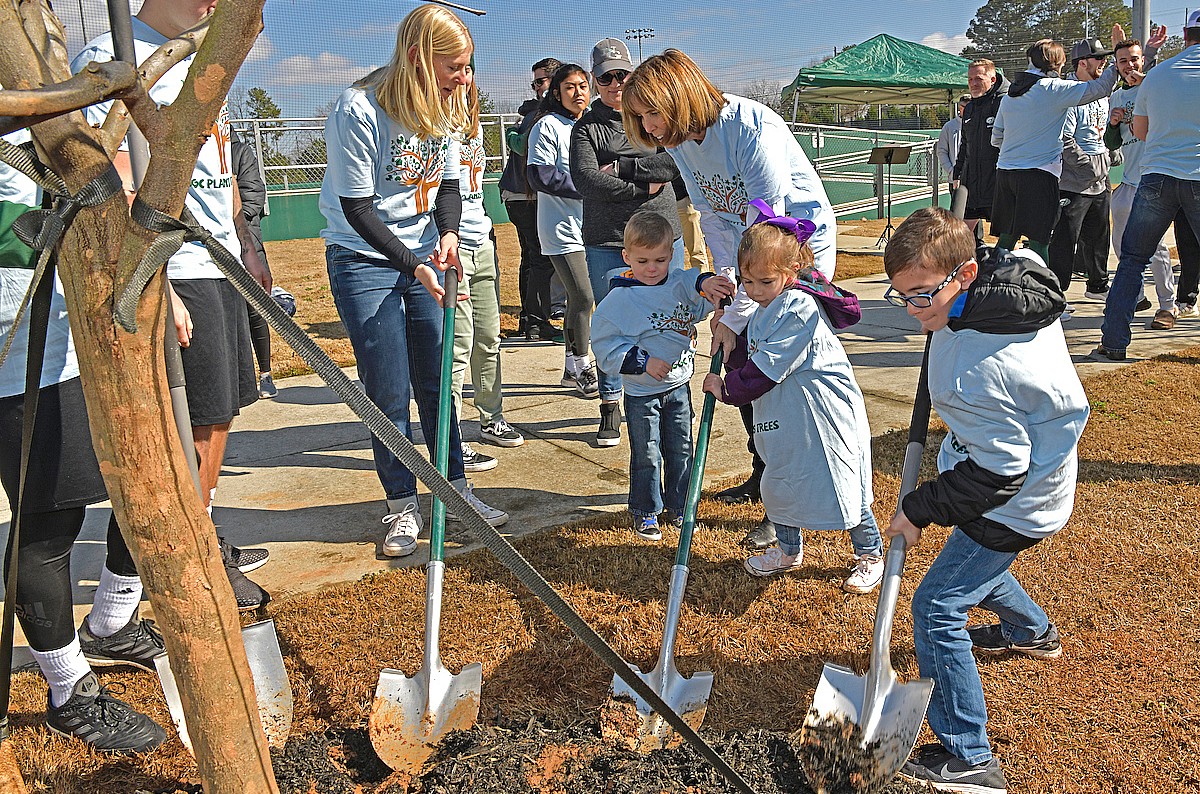
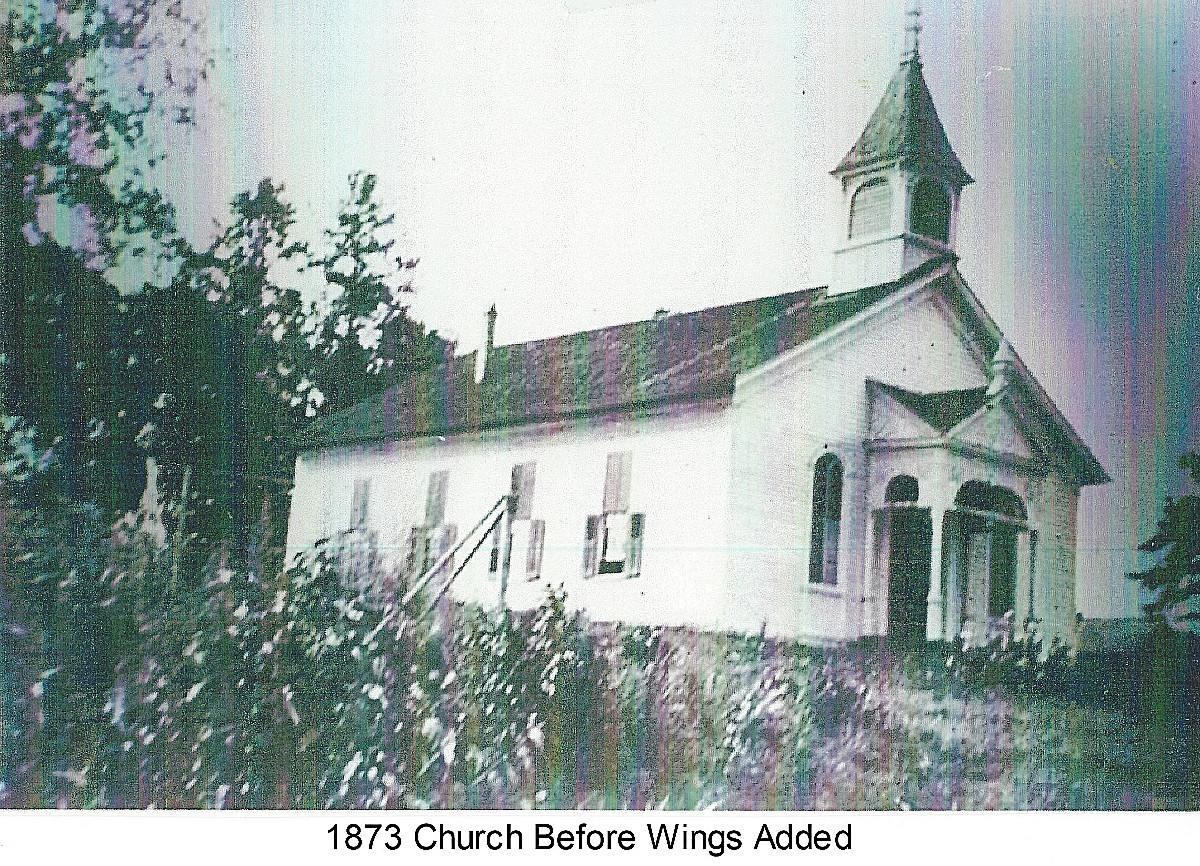
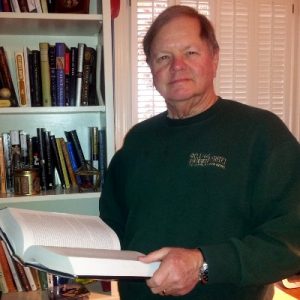

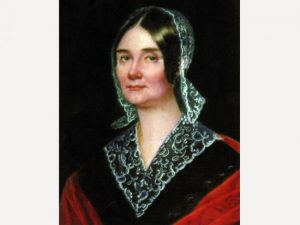
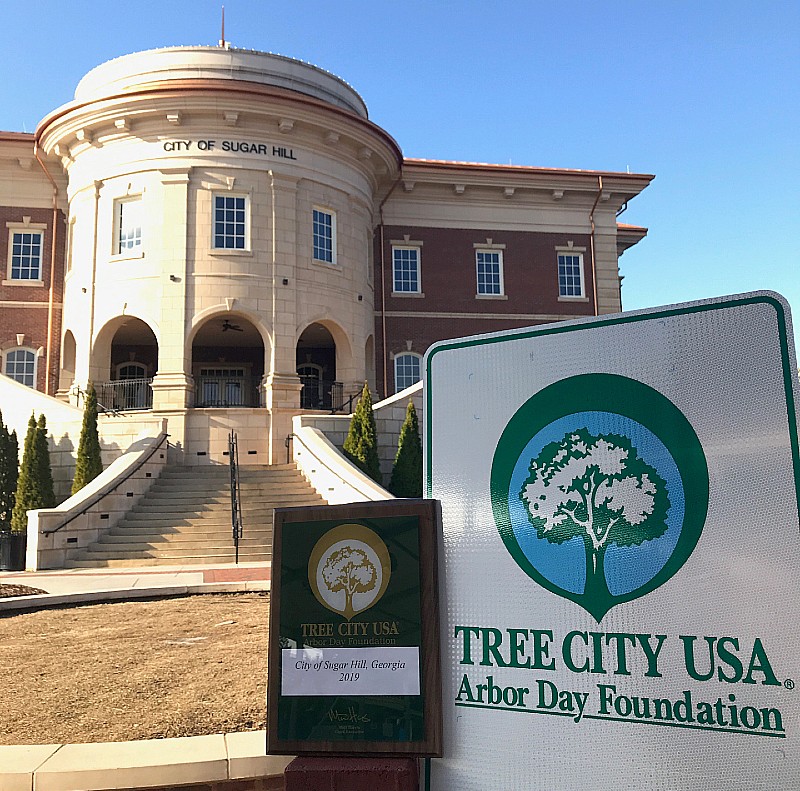







Follow Us